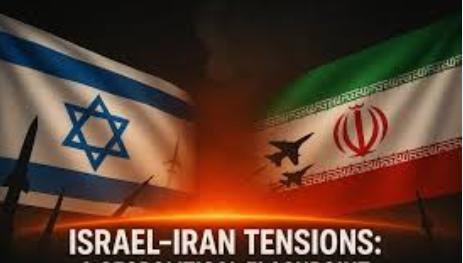Civilization, we are told, is a compact between memory and moral restraint—a shared agreement that history’s darker urges are not to be repeated. Yet the world sadly watches with unnerving composure as one nation persistently declares its desire to erase another—not metaphorically, not diplomatically, but literally. That nation is Iran. The object of its obsession is Israel.
Over the course of decades, from the mullahs in Qom to the Revolutionary Guard commanders in Tehran, the refrain has remained tragically consistent: that Israel must be “wiped off the map,” that it is a “cancer,” an “illegitimate regime” to be eradicated. These are not slips of rhetorical excess; they are carefully repeated doctrinal positions—chanted in parades, etched into state policy, and translated into missile range.
Yet in the arithmetic of much modern commentary, the threatened are expected to respond with silence, while the threateners are dignified with nuance. Well Israel is a different keg of fish. It is a nation reborn from the ashes of the Holocaust, and the dust of diaspora, and should be treated as a miracle of survival, not as a suspect presence—tolerated, perhaps, forever on probation in the moral courts of global opinion. When it responds—when it takes measures to survive, to defend its citizens from genocidal promises—it is labeled aggressive, expansionist, uncooperative. But in diplomacy preemptive attack is justified when a clear and presentf threat is established This is the grotesque irony.
Just a minute! The sky, that ancient and borderless canvas, was once large enough for two birds to fly. Is it now so constricted that the very existence of one bird necessitates the destruction of the other? Can two nations not soar in peace without being conditioned to collide?
To declare that a nation must cease to exist is to declare that its people—shopkeepers, schoolchildren, seamstresses and surgeons—are disposable. A nation, after all, is not its army, nor its leaders, nor its policies. It is a collection of souls, bound by memory, language, longing, and law. When we speak of annihilating a state, we speak—however obliquely—of annihilating its people. Such language, left unchallenged, degrades not merely diplomacy, but humanity.
It is often said that war is what happens when language fails. But war is also what happens when language is corrupted—when genocidal ambitions are sanitized as resistance, and when the right to self-defense is reclassified as provocation. Israel, uniquely among nations, is asked to justify its right to exist while its neighbors are not asked to explain their calls for its extermination.
This double standard has consequences. It emboldens the radical and embarrasses the reasonable. It tells future generations that some lives are negotiable and some threats are permissible—provided they come wrapped in ideological justification.
The world will not know peace so long as it condones nations which see other nations as abstractions to be erased rather than as homes for the hopes and histories of real people. We must remember, if memory still matters, that the road to genocide is paved not only with hatred, but with indifference—the indifference of those who stand by as one bird sharpens its talons while the other is told to flap more quietly.
There is still sky. There is still time. But peace will remain a fiction until the dream of coexistence is valued more than the fantasy of obliteration. If the sky is no longer big enough for two birds to fly, it is not the fault of the sky. It is the fault of those who have mistaken domination for destiny.
So because two birds do not want to share the sky, they are sharing missiles and mayhem. They darken the heavens with with smoke and shrapnel, rewriting the poetry of the sky in the grammar of destruction. And yet, amid the sirens and rubble, the enduring tragedy is this: it didn’t have to be this way because he sky was never contested real estate. The sky is a gift, a stage wide enough for difference, dialogue, and dignity. But when hatred blinds vision and racism hardens hearts, even the saint begins to feel claustrophobic. Perhaps the question is no longer whether two birds can fly together, but whether we still believe they will.


